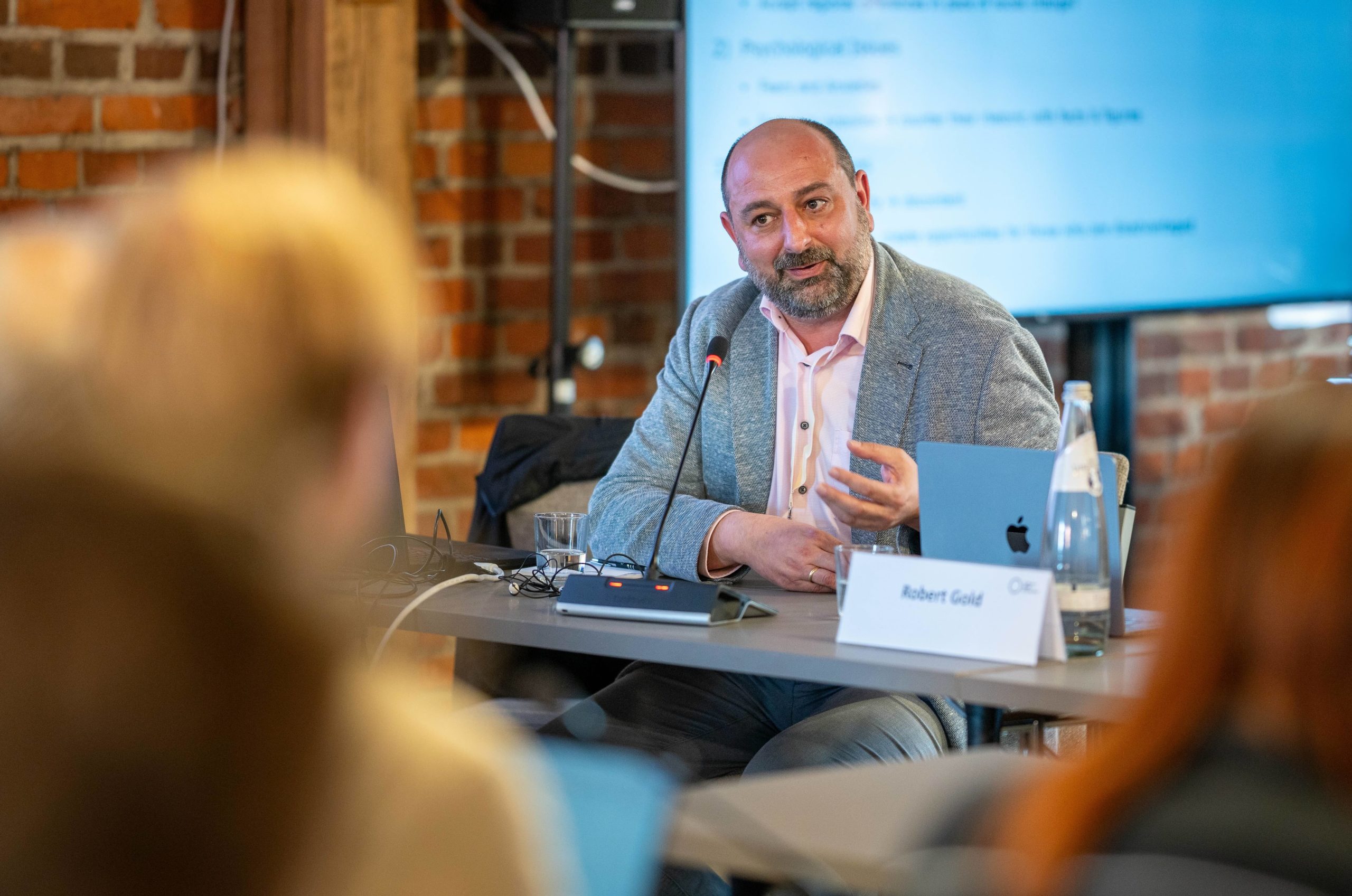NEW PARADIGM
The Berlin Summit 2025: Winning back the people – Exploring the blind spots
Why do people turn to populist parties—even in economically stable regions? A debate on trust, cultural anxiety, and the blind spots of the political center.
BY
FORUM NEW ECONOMYPUBLISHED
20. JUNE 2025
This panel focused on the rise of populism, failures of mainstream parties to reach parts of the electorate, and the roles of inequality, migration, inflation, and identity. It opened with an illustrative case: a former Social Democrat from an industrial region in western Germany who turned to a right-wing party after feeling unheard and overburdened during the 2015 migration wave. The story highlighted how the unequal geographic distribution of migration can fuel resentment when already struggling areas face additional pressure.
1. Root Causes of Populism
-
The panel emphasized that populism stems from a mix of cultural anxieties (e.g. traditional values perceived as under threat), economic grievances, and a widespread loss of trust in institutions.
-
Migration plays a significant role, not always because of numbers, but due to perceptions of unfair burden and cultural dislocation.
-
Studies show that regional investments in Europe can strengthen trust in democracy—even if people don’t feel individually better off—by signaling that leaders care.
2. Contrasts: Europe vs. the U.S.
-
While European regional support funds appear to reduce populist support, the U.S. Inflation Reduction Act had no discernible effect on voting behavior in affected areas.
-
Possible explanations include timing, poor messaging, or a deeper loss of institutional trust in the U.S.
3. Inflation and Populism
-
Voters strongly dislike inflation, which triggers emotional reactions such as anxiety and anger.
-
Surveys show that people mostly blame governments for inflation, regardless of party affiliation.
-
Populists effectively use inflation rhetorically to attack elites and governments, linking it with other grievances like migration.
4. Trust over Policy
-
Several speakers argued that people vote based on trust and identification, not policy detail. A candidate’s background, manner of speaking, and cultural cues often matter more than concrete proposals.
-
Populist leaders often present themselves as anti-elite, relatable, or emotionally in sync with voters—regardless of their actual background or wealth.
5. Representation and Elites
-
The political and media class has become increasingly homogeneous, with fewer representatives from working-class or rural backgrounds.
-
Barriers to political participation (e.g. time, money, education) reduce diversity among political candidates.
-
This disconnection feeds the perception that politics no longer serves “ordinary people.”
6. Media, Messaging, and Emotion
-
The spread of populism is intertwined with media transformation. Historically, populists have always exploited new technologies—from the printing press to social media.
-
Mainstream parties, especially center-left ones, were criticized for communicating like academics. Emotional, relatable messaging—possibly even humor—was seen as essential.
-
The panel noted that it’s not enough to have good policies; parties must build emotional resonance and trust.
7. Broader Reflections
-
Panelists discussed whether categories like “working class” are still meaningful in politics or whether new social identities (e.g. educational divides) better explain political behavior.
-
There was a general agreement that populism can’t be reduced to any one factor. It is fueled by overlapping feelings of economic insecurity, cultural displacement, loss of control, and unresponsive institutions.
8. Conclusion
-
Winning back the people will require more than technical policy fixes. Mainstream politics needs to regain emotional legitimacy, improve representation, and offer a credible sense of belonging and purpose.
-
In this context, both rational arguments and symbolic gestures matter. Delivering material improvements must go hand in hand with rebuilding trust and democratic connection.
